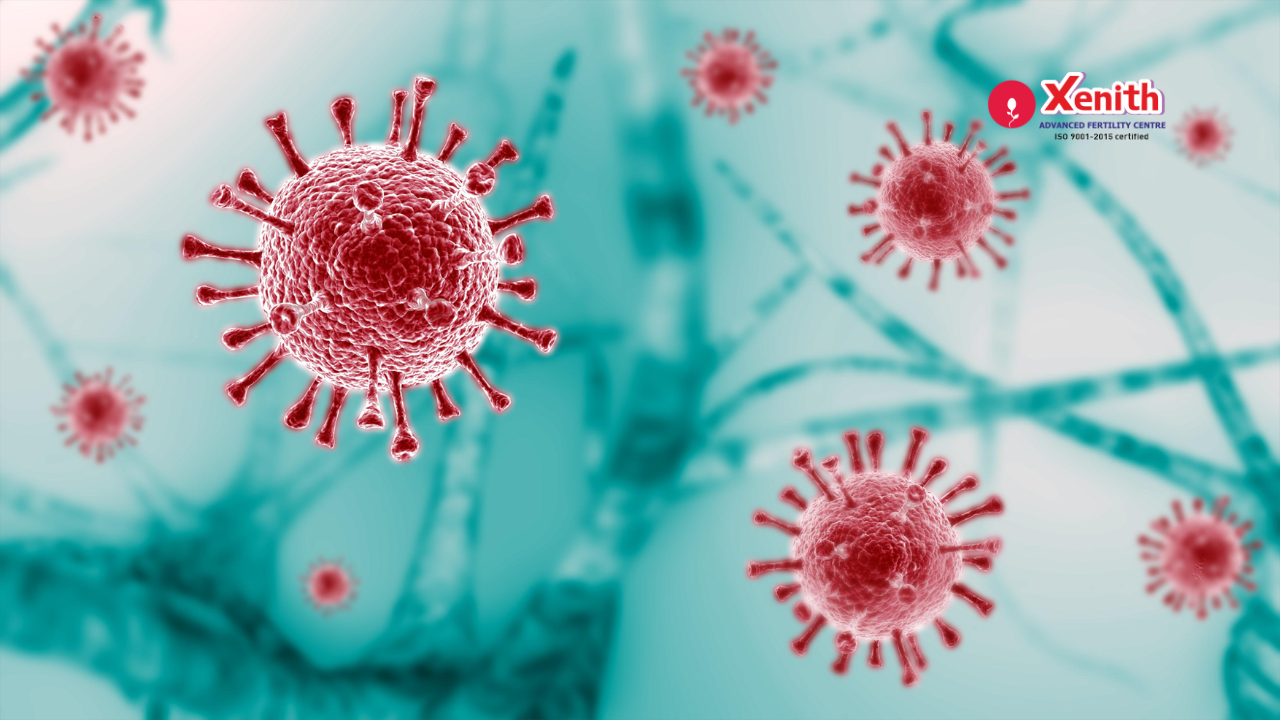COVID-19 has played havoc in the lives of millions of people throughout the world since it was reported in Dec 2019. The virus infects the body by attacking the healthy cells in our body, makes copies of itself and then multiplies throughout the body especially in the lungs. The SARS-CoV-2 coronavirus that causes COVID-19, is transmitted through droplets expelled from an infected person’s nose or mouth when they cough, sneeze or sometimes even talk.
Phases of COVID
The COVID-19 disease is said to have 3 phases. During phase 1 which is the early infection phase, the virus multiplies in the body and causes mild symptoms not unlike the common cold or flu. Its symptoms may include fever, chills, cough, shortness of breath, fatigue, muscle or body aches, headache, loss of taste or smell, sore throat, congestion, runny nose, nausea or vomiting, and diarrhea. In the second phase the virus moves to the lungs causing respiratory issues with pneumonia like symptoms. Its symptoms may include persistent cough, shortness of breath, and low oxygen levels. There might also be problems with blood clotting. If the oxygen levels go too low, you might need to be admitted and you might be prescribed various medications, anti-virals, and steroids by your doctor. In phase 3, there is injury to various organs like heart, and the kidneys and the immune system may begin attacking its own body leading to organ failure.
What is long COVID
Most people testing positive for COVID recover by the first or second week. But some people experience long term effects and sometimes debilitating symptoms that is called long COVID and it occurs when people don’t come back to their normal health after four or more weeks after initial infection. (1) Symptoms of long COVID could include fatigue, fever, coughing, difficulty breathing, difficulty concentrating (brain fog), joint or muscle pain, headache, diarrhea, loss of taste or smell, skin rashes, heart palpitations, chest pain, stomach pain, sleep problems, dizziness, feeling of pins and needles in the body, and changes in menstrual cycle. Since it’s a new disease, there’s still a lot to be learned about long COVID. People with long COVID are not considered infectious. Vaccination might not prevent you for getting COVID but it could prevent severe illness and lower the risk of developing long COVID. Currently there is no diagnostic test to confirm if someone has long COVID and issues like fatigue and brain fog are hard to diagnose.
Nutrition and its effects on long COVID
Diet and nutrition could help people struggling with long COVID. Try eating a Mediterranean diet which includes eating a lot of fruits and vegetables, whole grains, pulses, legumes, olive oil, nuts, and protein sources like eggs, fish and chicken. Proteins can give you energy especially if you are dealing with fatigue. Because Covid is a disease of inflammation, it might help to eat anti inflammatory foods like ghee, turmeric and fish oils and avoid inflammatory foods like processed foods, refined sugars, and junk foods as well as red meats. Plant based diets also have anti-inflammatory properties. (2) Also make sure you are not deficient in certain vitamins and minerals like vitamin B12, Vitamin C, Vitamin D, zinc and iron. They can improve your immunity and give you energy to fight the fatigue. Use of probiotics like yoghurt can help the flora in your gut.(3) Speak to your doctor about getting tested for any deficiencies and what to take. Its also important to drink lots of water and stay hydrated. Another factor to consider is the quantity of food you eat. Because COVID can affect your sense of smell and taste, you might have a loss of appetite. So practice mindful eating making sure you focus on what you are eating and how much you are eating. Following a healthy balanced diet can help in getting your body back to tip top shape.
Does long COVID affect fertility?
Research shows that catching COVID can affect male and female fertility but getting the COVID vaccine does not affect it. In one study, it was found that in men, semen quality, motility and sperm count is negatively affected due to lower testosterone levels immediately after infection and its magnitude depends on the severity and duration of the disease. However, its not known if this effect is due to the virus itself or due to the body putting its resources toward fighting the disease or due to the side-effects of treatment with various medications like steroids or anti virals. It was also found that these effects are temporary and the sperm profile seems to come back to its pre disease state after some time. More research needs to be done on this.(4)
Catching COVID might also affect female fertility causing irregular menstrual cycles and affecting the ovaries and disrupting sex hormone levels. It might harm tissues in the ovaries, reducing egg quality, and also might negatively impact ovarian reserve (the number and quality of eggs in the ovaries). But it was also found that these effects were temporary in most cases. So a study suggested postponing IVF treatment at least 3 months after COVID-19 infection.(6) After being tested positive for COVID, it may be harder for conception to occur in the short term although this is temporary. However, since this is still a very new topic, more studies are needed to find out the effects of COVID on fertility. There’s still a lot to learn about COVID. If you are suffering from the impact of long COVID and have questions about when to have a baby, our experts at Xenith Advanced Fertility Centre can answer all your questions.

